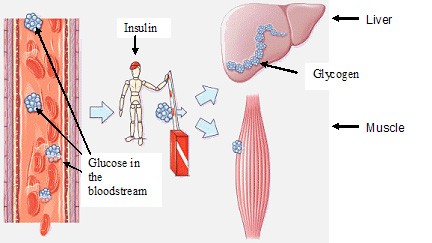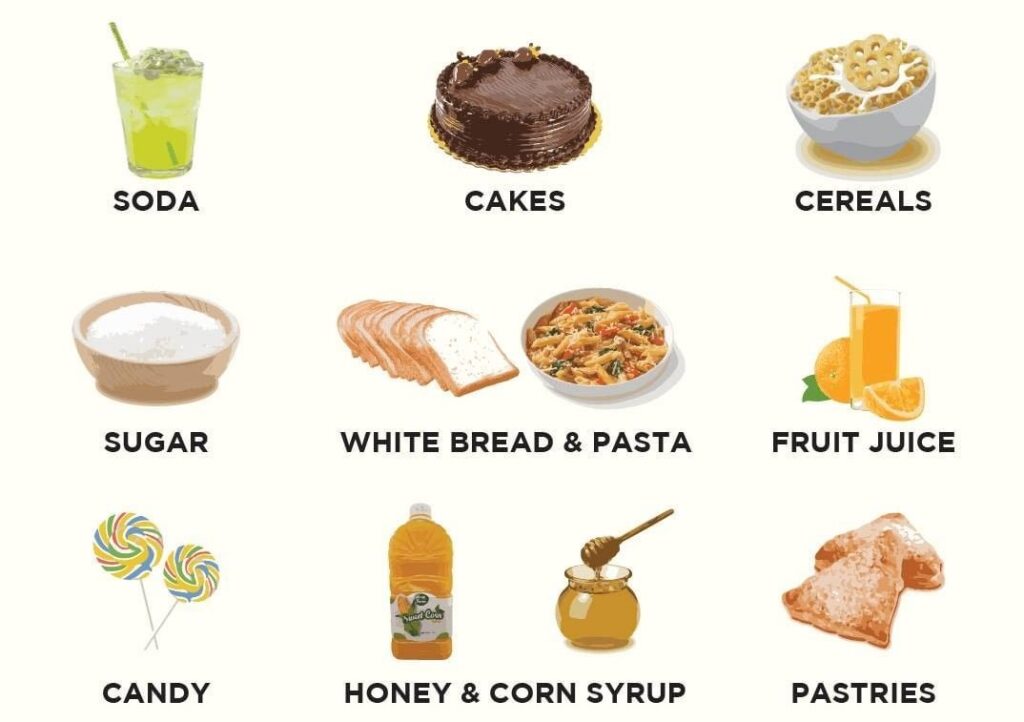When you dig deeper into the fitness world, you probably become aware of the first and foremost enemy of all the problems and your extra weight – carbohydrates. The majority of the articles advise you to limit their amount, to be fitter, stronger and healthier. However, science begs to disagree. Despite having a bad name, carbs make the third part of the irreplaceable macronutrients required for our proper functioning. Apart from being the main source of energy, we use carbs for muscle growth! Isn’t that surprising? Our enemy is, actually, our strength. Let’s bust the fitness myths together and find out why you need carbs to build muscle mass and what products are the best carbs suppliers.
Page Contents
Do You Need Carbs To Build Muscle?
The answer is obvious – yes. There’s a common misconception that the only thing that can help you grow the muscles is protein. Well, technically, it’s true. Carbs don’t form the components of muscle directly. However, by cutting down on carbs completely, you’re likely to face fatigue and a shortage of fuel for exercising which in turn helps you build muscle. As we see, there’s a strong need for protein and carbs to build muscle mass.
Why Do You Need Carbs To Build Muscle?
Carbohydrates aren’t just about sugar, they are a part of a complex chain of reactions in our body. Besides, the different types of them – complex and simple, which is essential to consider when planning the daily menu.
-
Carbs help regulate muscle glycogen repletion
How do carbohydrates work? When we consume carbs, they are broken down into glucose which releases the energy we need for movement. You probably noticed that after eating carbs, for about 20-40 min, you feel more active and awake. When there’s an excess of glucose, it’s turned into glycogen and gets stored in the liver and muscles for later use.
When you exercise, your body needs fuel, which comes from glycogen storage. If your workouts are vigorous and intense, your storage gets empty quickly, so you need to replenish it again.
When you are low on carbohydrates, glycogen stores are reduced, which is the reason for little energy available and the lower efficiency of your workout. Replenishing glycogen stores is vital for effective strength training.
It looks like an energy cycle – to get enough fuel, you need to refill it regularly, otherwise, there will be no movement. Imagine a car. If there’s fuel, there’s movement, that’s the only way it works. Replenish your energy tank properly.
-
Carbs prevent muscle degradation
Carbs are not the obstacle that prevents us from gaining muscle mass, it’s rather a shield, that keeps our muscles away from a breakdown.
Low – carbohydrate diets are quite popular, however, they lead to the loss of muscle tissue. How does it happen?
When we are low on glycogen and the energy tank is empty, our body starts producing energy from other sources – fat and muscle tissue. If the diet takes a long time, your muscle mass will just shrink, as there’s no other option to get energy from.
-
Carbs help muscles recover from exercise
While exercising, our muscles get slightly damaged as they need to withstand great force and tension. Once you finish, the muscle must regain its strength. What’s the best way to provide its recovery? According to the research, the after-workout cornerstone is a combination of carbohydrates and proteins – 2:1. For every 20 to 40 grams of carbs you need 10 to 20 grams of protein [1]
-
Isn’t Protein More Important Than Carbs for Building Muscle?
This is a tricky question. These two macronutrients are imperative for muscle growth and body composition. When you do resistance training for muscle mass gain, your body needs glycogen. Carbs are the best supplier of it. While protein is a building block for your muscles to grow, carbs are managing this process. The cooperation of carbs and proteins will lead you to the desired effect.
What Carbs Can You Eat For Muscle Development?
Let’s firstly single out two types of carbs – complex and simple – which make the difference in terms of muscle building and fat loss.
1. Simple carbohydrates
Simple carbs [2] are digested easily, which gives you an immediate spike of energy – a magic pill that helps you stay awake or get the energy quickly. This type of carbs is mainly found in refined sugars; they provide calories, but lack vitamins, nutrients, and fiber, which can become the reason for weight gain and digestive problems.
There’s also a significant downside: simple carbs are consumed quickly, and boost your energy; however, the effect is short-termed and 30 minutes later you’ll need another portion of sugar. That’s why we constantly look for something tasty and eat it ➢get the energy ➢ get tired quickly ➢ eat something tasty again and so on.
“But what’s wrong with it?”, you may think. The problem is the energy you don’t spend. You receive a lot of calories (even from “just a tiny piece of cake and a candy”) but you don’t burn them. This long-lasting effect will be weight gain.
Not all simple sugars are the same. Fruit and milk are also simple carbs, however, their sugar is natural and it gives you vitamins, minerals, and fiber that our bodies need.
Be attentive! Simple carbs increase the sugar level instantly, which is dangerous for people with obesity and diabetes problems.
2. Complex carbohydrates
Complex carbohydrates take more time for digestion, hence the release of glucose into the bloodstream is slow. You will not experience a surge of energy at once, but rather feel it come gradually.
Unrefined whole grains are rich in fiber and nutrients, maintaining proper work of your digestive system. Fiber helps you feel full for a longer time. That’s why you don’t have a feeling of hunger for the next several hours. After eating a bowl of oatmeal you will be able to keep at the same energy level for a long time; after a package of biscuits with hot chocolate, you’ll have a need to eat more after 30 – 60 minutes.
White bread, white rice, and white flour – are tasty; however, the whiter the bread, the less nutritional value it has. Refined carbs undergo processing, which removes many essential vitamins and nutrients.
When to Consume Complex Carbs for Muscle Building?
Your ability to perform and recover is directly linked to the types and amount of carbs you eat. Choose the wrong ones or eat too many – you’re bound to fail the training.
Aim for 5 – 10 grams of carbs per kilogram of body weight – that’s a starting range. You can tweak it later when you see how it goes. that you can tweak until you discover what feels best.
The recommended time to eat is 3-4 hours before the training. You’ll give enough time for your digestive system and the following energy-releasing process to work. And, when you start the training you’ll be at the peak of your activity.
If you had no time for a proper meal, you can snack on something before the workout – 30-60 minutes. Avoid pastry and refined sugar, opt for dried fruit or high-carb drinks. It will lessen the chances of bloating right before the training.
You should carefully choose the carb intake for your menu – the range is huge, to satisfy every taste. However, keep in mind the fact that you can have an individual intolerance or allergy to some types.
What Happens to Muscle When Carbs are Low
Carbohydrates give us energy in the form of glucose, which is turned into glycogen when not used. This storage provides you with energy when you need to exercise. Glycogen is stored in your muscles (energy for movement) and your liver (brain work and other organs). When glycogen is reconverted back into glucose it is called glycogenolysis.
When glycogen stores are low, your body, looking for energy, is breaking down the fat and muscle tissue, making you lose it. That’s certainly not the result you were expecting, isn’t it?
Besides, when you are too low on sugar, you may experience extreme fatigue, dizziness, complete loss of energy, and the inability to focus – this is called hypoglycemia.
It’s a good idea to limit the number of carbs on your daily menu; however, it’s mainly about unhealthy snacks, sugary and greasy meals – they give you nothing but empty calories.
Getting rid of carbs, on the whole, will just lead to health issues, unfortunately.
Complex Carbs for Muscle Gains
As you already understood, complex carbs have a significant influence on your health and provide a more efficient workout. Let’s see the examples of the best complex carbs to add to your menu to have the most benefits:
1. Potato
Surprise-surprise! You could expect anything but potato in the first place. Potatoes are actually very good for you, being a great source of potassium and vitamin C. When you cook it with the skin, it provides you with fiber. Instead of mashed potato, try baking it with skin in the oven. This way you’ll prevent the loss of vitamins, increasing your meals’ nutritional value.
2. Brown Rice
Brown rice should definitely be on the list of good carbs for building muscle. It is a complex carbohydrate and the “unrefined” variant of white rice. It provides a sustained release of energy to grow muscle mass and improve resistance training workout results.
Brown rice, like all whole grains, is high in fiber, vitamins, and minerals. One serving can provide you with carbs, calories, and very little fat. It can be easily combined with protein meals and vegetables to help you build muscle mass and prevent false hunger.
3. Chickpeas
Chickpeas, despite being known as a highly-protein product, have more complex carbs in their value. If you have trouble gaining weight, eating chickpeas will be an effective way to help- 164 grams of chickpeas contain around 15 grams of protein, 45 grams of carbs, and 13 grams of fiber.
Chickpeas are a great addition to meat or fish.
Consuming chickpeas on regularly, you’ll see that eating carbs to build muscle isn’t a myth, but reality.
4. Pasta
When thinking about the best carbs for muscle growth, we can’t ignore pasta. A typical Italian delicious food has more importance than just its taste and atmosphere.
Whole-grain pasta is typically high in fiber, manganese, selenium, copper, and phosphorus. It promotes fullness due to high levels of fiber, reducing your appetite and hunger cravings.
White pasta is refined and processed. It’s deprived of its nutrients and is low in fiber, along with bringing the calories you don’t spend. Besides, it will just increase your appetite after an hour or so.
5. Oatmeal
Oatmeal is a valuable source of complex carbs, If it is a part of your breakfast, it gives you an energetic start to a day. Oats have a lot of fiber and protein – per one cup, oats contain 10 grams of protein and 8 grams of fiber. This effective combo will increase your satiety throughout the day and keep you away from snacking. Oatmeal will benefit not only your health but also body composition when combined with intense exercise or body composition activities.
6. Bananas
Bananas are a universal type of nutrition. They work well as a snack and nutritious meal when there’s nothing else to eat. Bananas are made up of mostly complex carbohydrates, including resistant starch, which provides digestive health benefits. Consuming bananas as a type of snack, you will enrich your body with amino acids, vitamins, and potassium, helping you regulate blood pressure and overall health.
You do need to be aware that bananas are full of sugar, which is dangerous for diabetic conditions.
7. Quinoa
Quinoa is a king of grains and a beneficial nutrient for those who are looking for muscle growth and weight loss. If you doubt that carbohydrates help to increase muscle mass, try adding quinoa to your menu – it’s a protein – packed source with complex carbohydrates. 100 grams contain 8 grams of protein and 39 grams of carbs – just what your muscles need for strength training.
Quinoa has a low glycemic index preventing blood-sugar highs and lows. Quinoa also contains all 8 of the essential amino acids which makes it a valuable tool for improving body composition
Bottom line
Do you really need carbs to build muscle? Definitely yes, carbohydrate consumption is part and parcel of a process.
Do you need protein to build muscle? Absolutely, muscle gain is impossible without it. So, what works better for building muscle processes?
Our body is a very complex structure, with lots of reaction chains. All the parts and particles are interdependent. That’s why when you want everything to work properly keep to a balanced approach in nutrition, workout, and rest.
If you want to grow your muscles, don’t go to extremes work out more and cut down on carbs. Keep a balanced diet which will help your muscles be lean and energy levels are full. Sufficient carb intake provides you with energy and works as a support for your muscles: you don’t use the muscle tissue for the energy, but the energy stored in the body (obtained from the carbs). The meals combining protein and carbs help to replenish glycogen stores and repair muscles after training.
There’s one important thing to consider – what type of carbohydrates is more effective to gain muscle mass?
Building muscle mass is possible with complex carbs. They take longer to digest providing you with slow energy production – just a perfect variant for training sessions.
Simple carbs can also be used when you feel a lack of energy right before a training session, however, it’s better not to consume greasy and sugary snacks which contain lots of added sugar and will make you feel like a bubble.
And remember! Your body composition, muscle mass, and well-being can’t be provided solely by consuming a dietary protein, going on a low carb diet, or giving extra effort to hard strength training. It is important to combine all the ways together to reach your goals.







